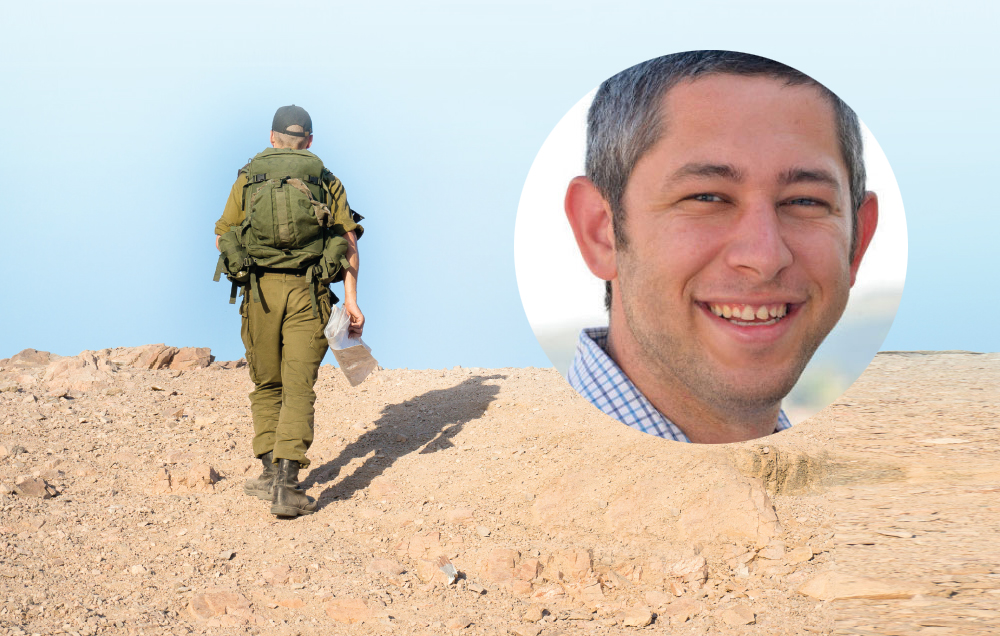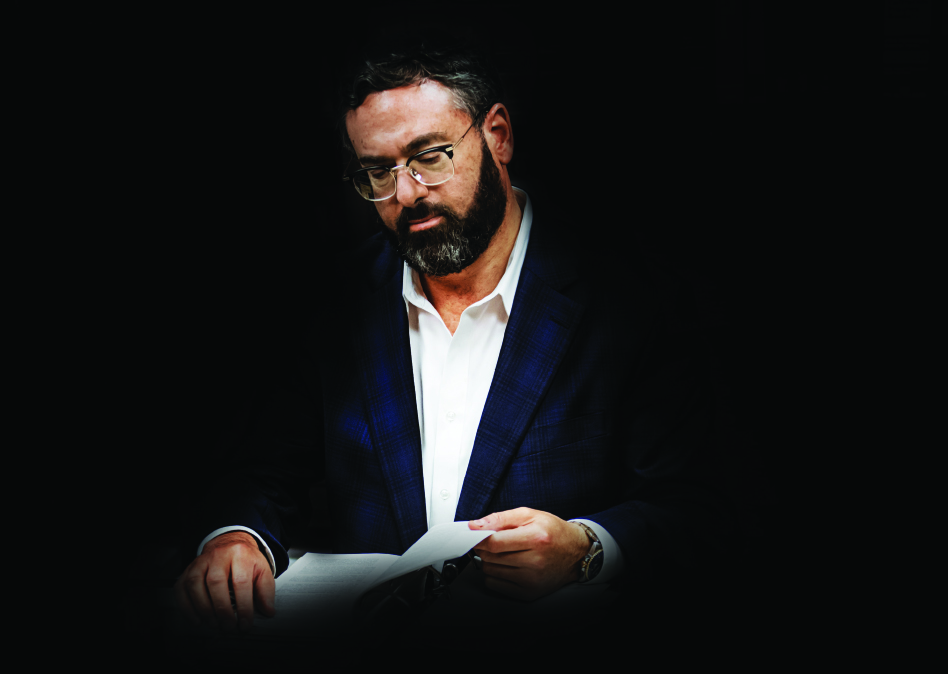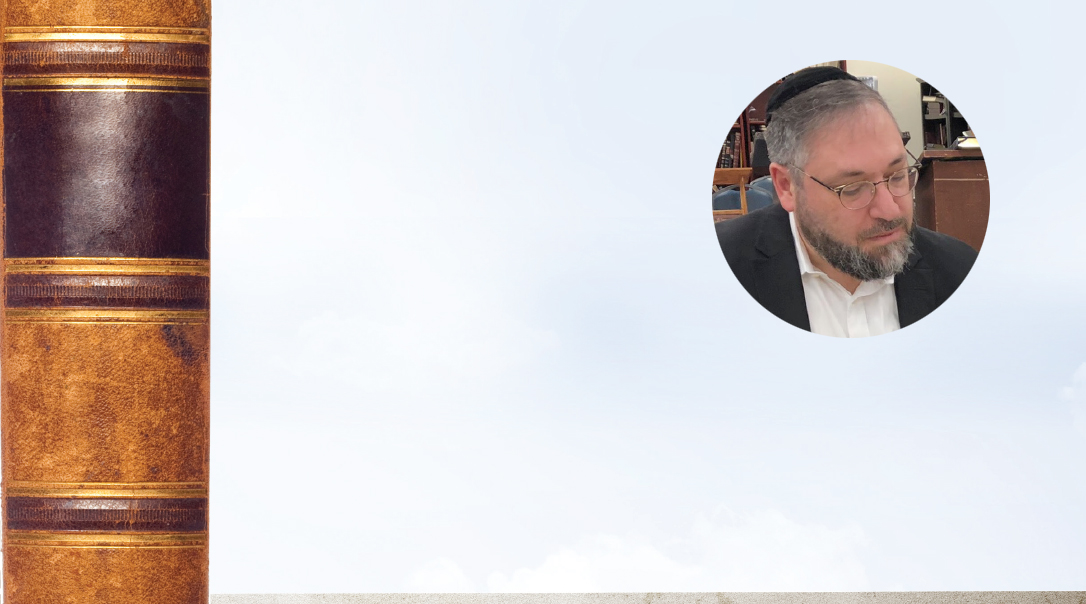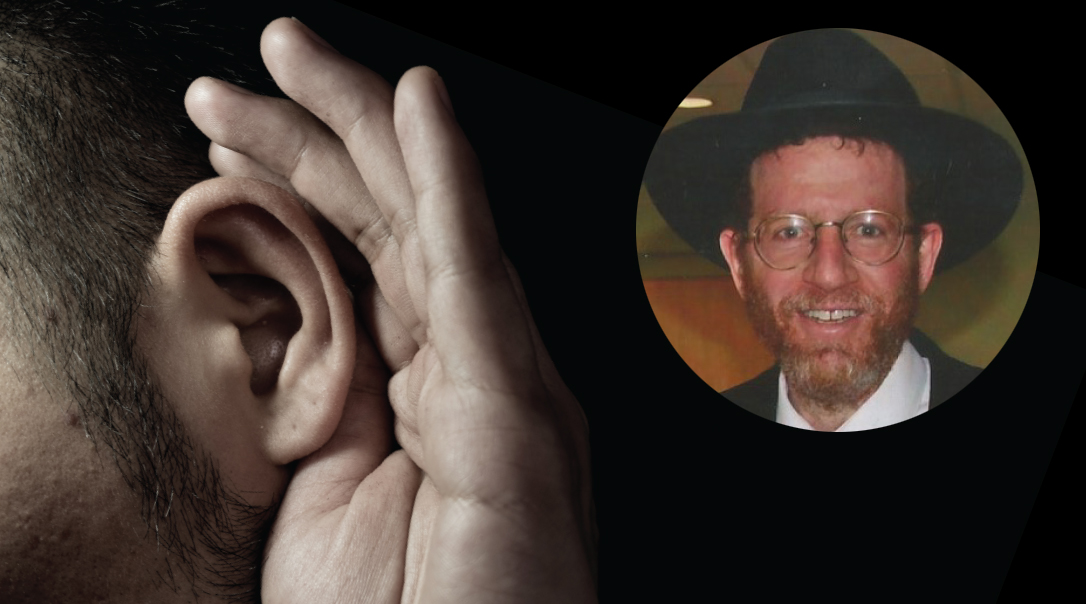Better Together: Partners in Torah
| December 25, 2019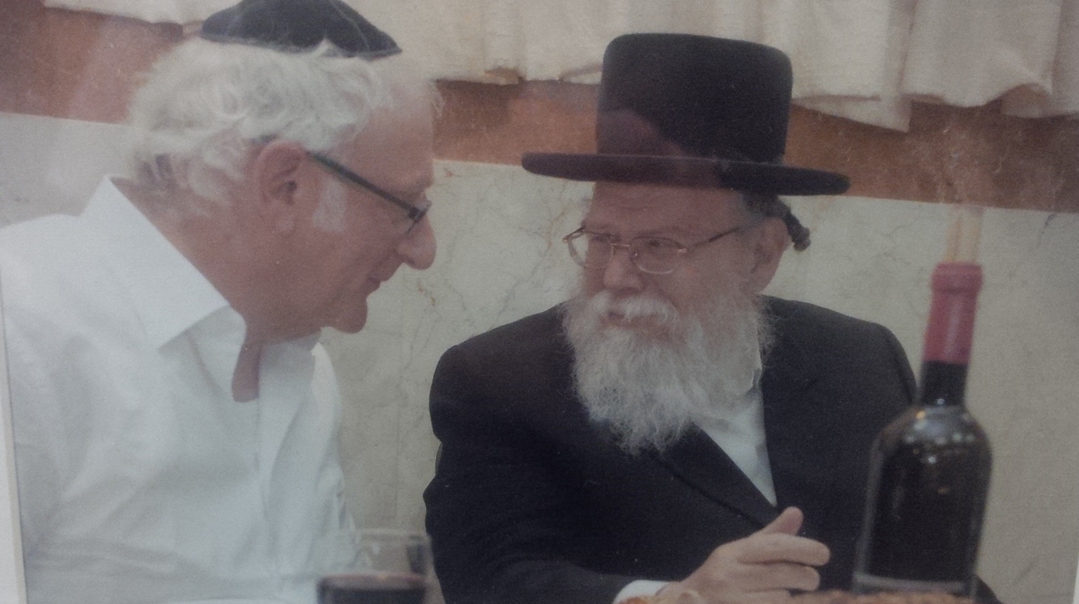
The Chavrusas: Ronald (Reb Shlomo) Hofbauer, Rav Moshe Chaim Bransdorfer ztz”l
The Location: Hager’s Kollel, London
The Limud: One masechta after another
R
onald (Reb Shlomo) Hofbauer has been a fixture on the benches of London’s Golders Green Kollel (known as Hager’s Kollel after founder Rav Gershon Hager) for the last three decades. But while he’s not your standard avreich, this hardworking surveyor and community-conscious balabos enjoyed a daily learning session with the late Torah giant and rosh kollel Rav Moshe Chaim Bransdorfer ztz”l. Mr. Hofbauer’s busy workday would grind to a halt for 90 minutes each afternoon when he would ascend to the top floor of Beis Yissocher Dov on the corner of Highfield Avenue and Golders Green Road. Onlookers might have considered the chavrusashaft an unlikely match — a chassidish rosh kollel and a decidedly non-chassidic clean-shaven balabos — but for Mr. Hofbauer, it was the ultimate rebbi-talmid shidduch.
“We learned daily for over 30 years and we covered numerous masechtos,” says Mr. Hofbauer of his venerated chavrusa, the rosh kollel, who passed away in Elul of 2017 at age 71 after a protracted illness. “Rav Moshe Chaim was very impressed that I would tear myself away from work and devote the time to learning. But for me, it was the greatest joy.”
He says that particularly memorable were the Kodshim masechtos, “which brought the subject to life for both of us. We’re talking about a gadol b’Yisrael, but one year, after Yom Kippur was over, he told me that because of our learning, his Yom Kippur was completely different — as of course was mine. Here was the maestro at the heights of his specialty, but for me it was totally new territory. Rav Moshe Chaim took me on a virtual tour of the Beis Hamikdash.”
Rav Moshe Chaim Bransdorfer was born in 1946, the first baby born in the DP camp in Lausanne, Switzerland. For his survivor parents, their baby was a sign of the rebirth of Klal Yisrael after the Holocaust — and indeed, he was a symbol of Torah’s survival through the worst calamities. His father, Reb Hershel Bransdorfer, moved his family to Antwerp, and as a bochur, Rav Moshe Chaim became close to Rebbe Itzikel of Pshevorsk. After several years learning in the Wilryk Yeshivah under Rav Yehudah Aryeh Treger, he continued on to Eretz Yisrael, where he learned in the Belz and Tchebiner yeshivos and was considered a prized talmid.
After he married the daughter of London’s Reb Bunem Hirschler, the young couple moved to London, where, young as he was, he became rosh kollel in the Belz beis medrash, a maggid shiur in Satmar, and in 1977, was appointed rosh kollel of Hager’s Kollel — a position he held for 40 years, until his petirah.
As rosh kollel, Rav Moshe Chaim was involved in supplying London’s institutions with the finest rabbanim, marbitzei Torah, and mechanchim. But during his daily seder with Mr. Hofbauer, the learning was highly focused on the topic. “We were once learning Bava Metzia and he was stumped on a Rashi,” he remembers. “It amazed me how he approached the problem and indeed all of his learning with a fresh direction — although he had presumably learned the subject matter a dozen times prior.
“Torah was his life,” Reb Shlomo adds, “but his personality was so broad. He sat on batei din, as his daas Torah was known to be sound, reliable, and balanced. There was his chassidus — he introduced me to Ohr HaChaim and was a baki in Sheim MiShmuel and other chassidic seforim — and there were also his stories and his humor. He had a phenomenal memory for stories and jokes. I always wondered how he stored all that diverse information.”
As busy as the Rosh Kollel was with so many diverse obligations, he provided a huge level of support for Reb Shlomo Hofbauer during his own tough times. Six years ago, when Reb Shlomo was housebound following a serious road accident, their learning continued — this time in Reb Shlomo’s house. (Ironically, the accident occurred while Reb Shlomo was on his way to learning at the kollel, following a full day spent involved in other mitzvos, such as kibbud eim and finalizing the details of a hachnassas sefer Torah. It was a question that didn’t give him peace, until a rav told him, “Reb Shlomo, we can’t know what the end would have been had it not been in those circumstances.”)
Their chavrusashaft was held in the kollel five days a week, and in Reb Shlomo’s home during bein hazmanim, Chol Hamoed, and other non-kollel days. “During the summer holidays,” says Reb Shlomo, “they would travel to Bognor Regis. The Rav’s wife would prepare the holiday for the family and find a spot where he could ‘swim, sit, and learn.’ She would say, ‘As long as my husband is learning.’ ”
Other than that, there were few interruptions to their learning. “While Rav Moshe Chaim learned, there was only one way to reach him,” says Reb Shlomo. “If a family member needed to reach him, it was through my phone, as his was firmly switched off.”
Rav Moshe Chaim was close to his cousin, Eidah Hachareidis dayan and venerated posek Rav Meir Bransdorfer, and he was a mechutan of the well-known kehillah pillar Rav Chuna Halpern of Radomishle–Golders Green. He had a close relationship with Rav Leibush of Pshevorsk, who considered him “my first talmid.” Yet as “establishment” as he was, he held his own independent views on many contemporary matters.
“Rav Moshe Chaim would sacrifice popularity, reputation, and maybe even his health for emes,” says Reb Shlomo. “He would often rebuke me for not being sufficiently Zionistic. He would constantly ask me, ‘What’s news in Eretz Yisrael?’ and strongly considered accompanying me to the hachnassas sefer Torah I sponsored [one of several —Ed.] and presented to an IDF base near Netanya. How happy he felt to hear Bibi talk to the United Nations, exclaiming, ‘It is only a short while ago that a Jew would never have been heard on the world stage.’ He also told me how proud he was to walk in the streets of Tel Aviv on Shabbos, greeting and being greeted by fellow Yidden. He was always melamed zechus and tried to find a positive take on things.”
Since the kollel’s inception, Mr. Hofbauer saw two generations pass through — they’d begin as teenagers coming for evening learning and come back as married men. And Rav Moshe Chaim, he says, showed great love and caring for all of them. “He was a tremendous talmid chacham, but didn’t hold much of himself. He kept his greatness quiet. He would joke that he’d never wind up in a cemetery, because he’d never deserve the descriptions on the tombstones.”
During the last years of his life, Rav Moshe Chaim suffered from a heart condition, which made each journey from Stamford Hill to Golders Green very strenuous. He nonetheless insisted on the daily commute, explaining that really, his home was in the kollel.
“On the last day of our learning together I told him I didn’t feel well,” Reb Shlomo recalls. “He replied, ‘If you felt as bad as I do you wouldn’t have come.’ And he threw himself into a new sugya.”
Upon Rav Moshe Chaim’s petirah, the kollel lost an awesome Torah giant — his family is currently working through 40 or 50 notebooks of his chiddushim — and Reb Shlomo lost a devoted mentor, rebbi, and friend. But what they all gained was the vision of a successful businessman’s unswerving commitment to Torah and an unassuming gadol that led the way.
(Originally featured in 'One Day Closer', Special Supplement, Chanuka/Siyum HaShas 5780)
Oops! We could not locate your form.







